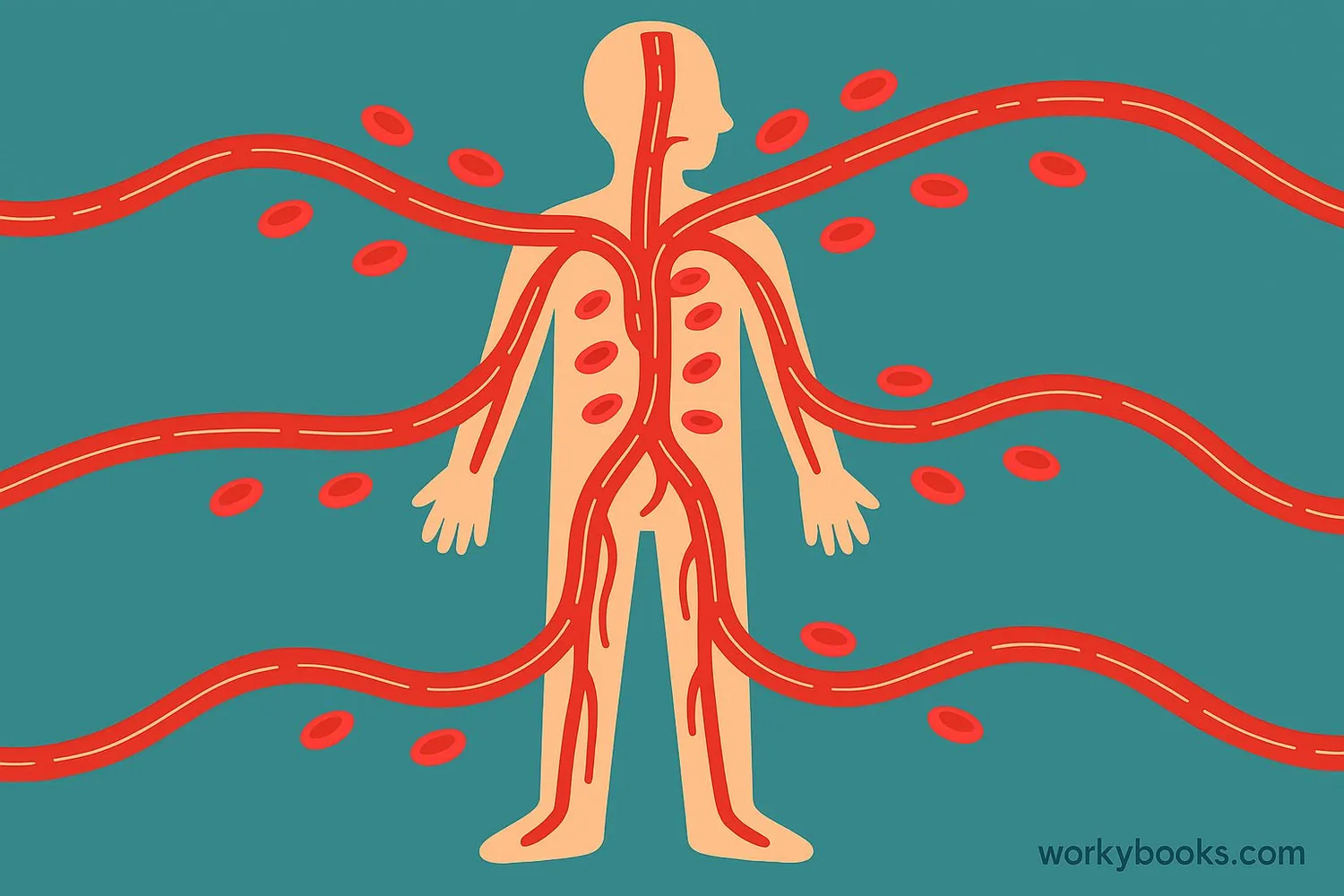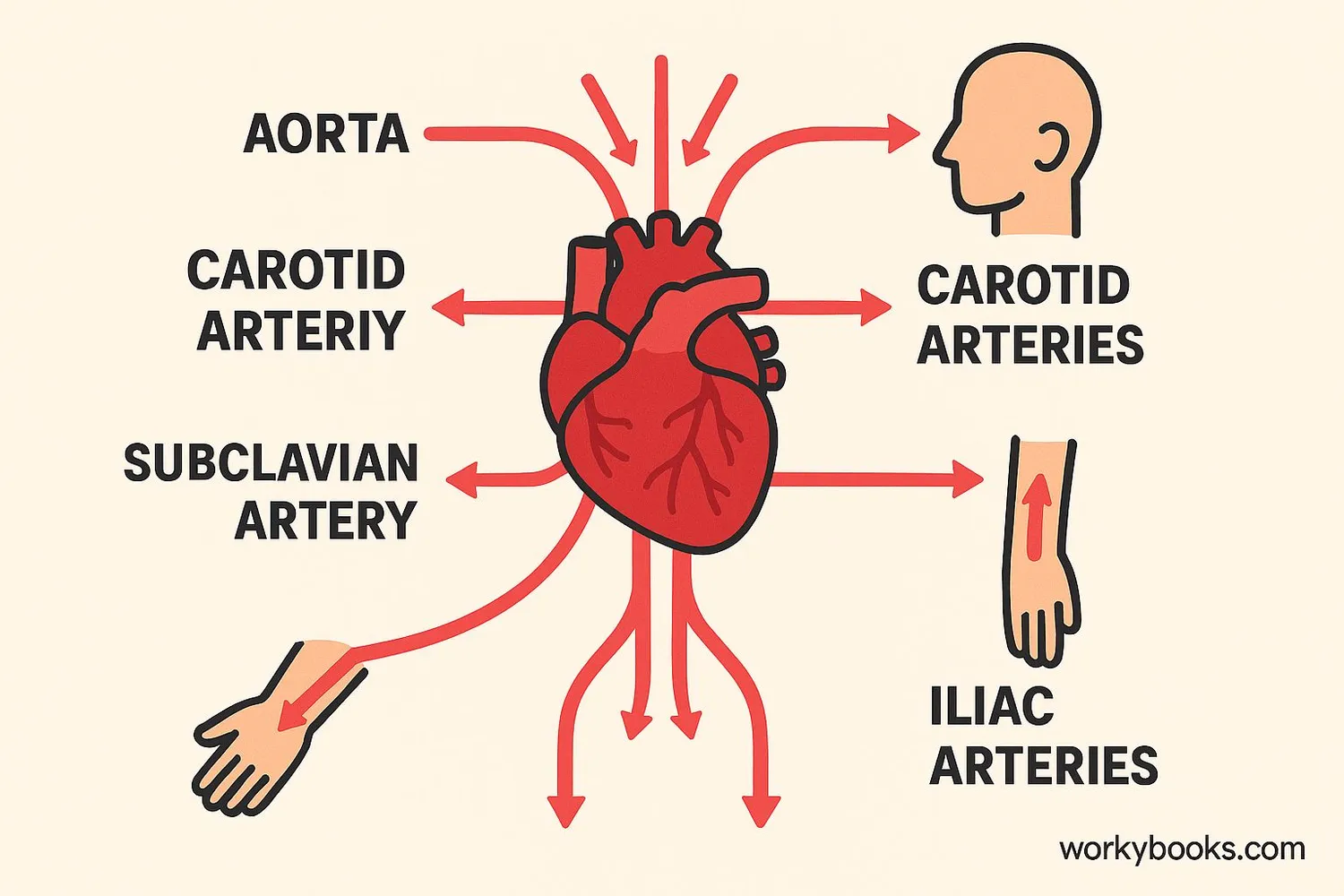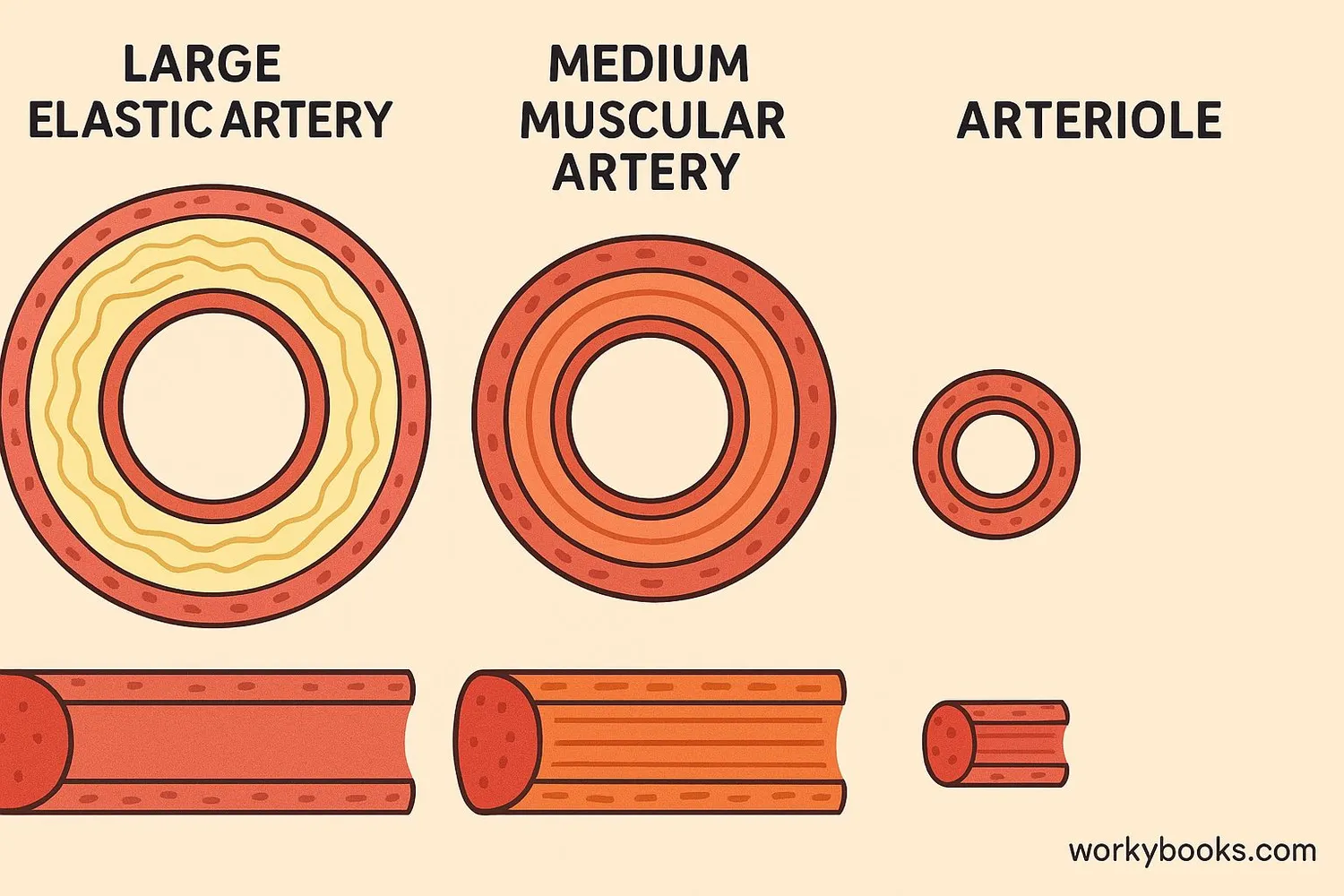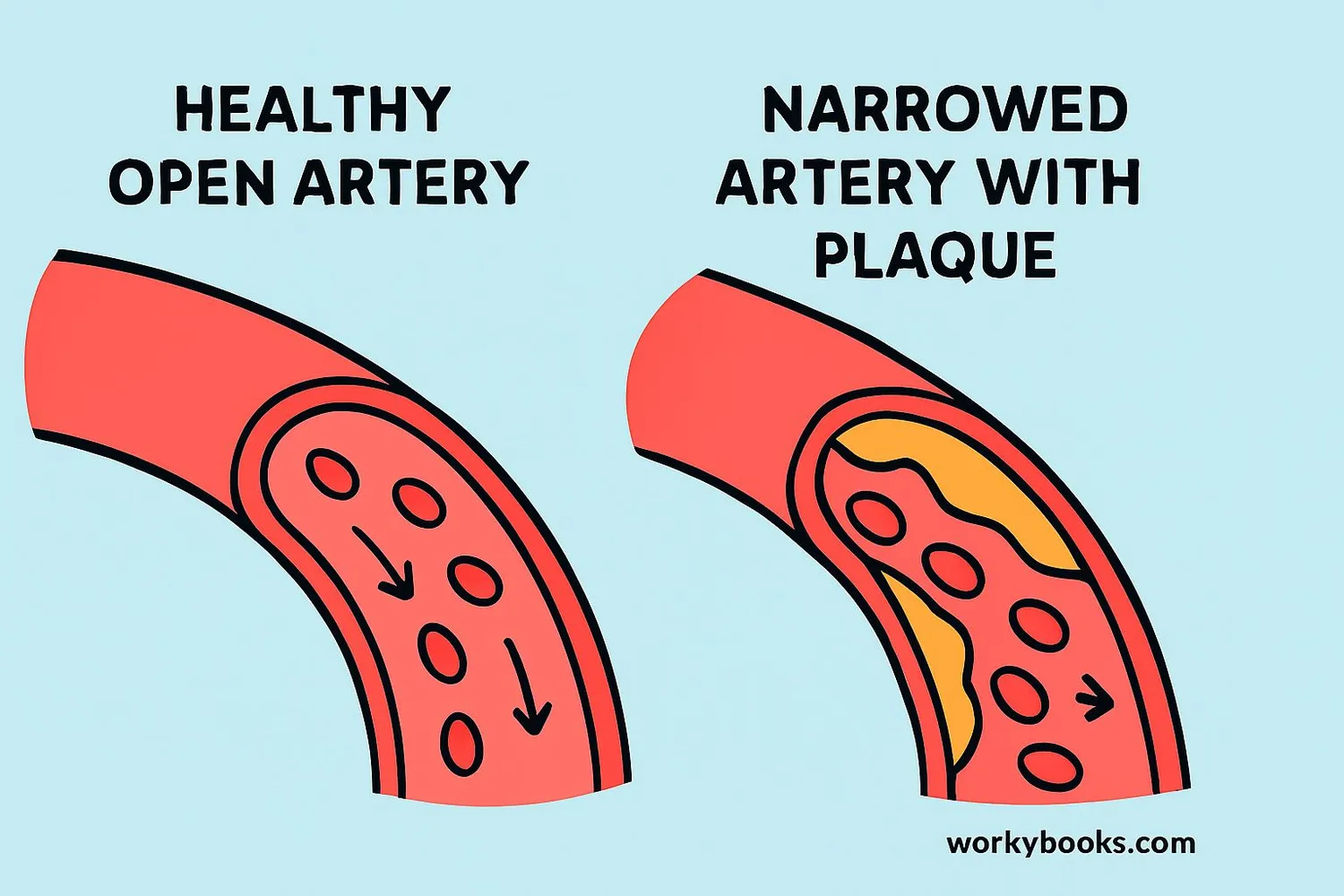Arteries - Definition, Examples, Quiz, FAQ, Trivia
Discover how these amazing blood vessels carry oxygen-rich blood throughout your body!
What Are Arteries?

Arteries are special blood vessels that act like superhighways in your body! They carry oxygen-rich blood from your heart to all parts of your body - from the top of your head to the tips of your toes.
Think of arteries as delivery trucks that bring important supplies (oxygen and nutrients) to every cell in your body. They have strong, muscular walls that help push blood along its journey. Without arteries, your cells wouldn't get the oxygen they need to create energy!
Did You Know?
If you laid all your arteries end to end, they would stretch over 60,000 miles - that's long enough to go around the world more than twice!
How Arteries Work

Arteries work as part of your amazing cardiovascular system. Here's how they function:
Heart Pump
The heart pumps oxygen-rich blood into the largest artery (aorta)
Branching Out
Arteries branch into smaller vessels reaching all body parts
Delivery
Smallest arteries deliver oxygen and nutrients to cells
Return Trip
Veins carry oxygen-poor blood back to the heart and lungs
Your arteries are designed to handle the pressure of blood being pumped from the heart. They have three special layers:
1. Inner layer - Smooth surface for easy blood flow
2. Middle layer - Muscle that helps push blood along
3. Outer layer - Protective covering
Pulse Power!
When you feel your pulse, you're feeling your arteries expanding as blood pumps through them! Your heart beats about 100,000 times each day.
Types of Arteries

Not all arteries are the same! Your body has different types of arteries that perform special jobs:
Elastic Arteries
Large arteries near the heart that stretch with each heartbeat
Muscular Arteries
Medium-sized arteries that direct blood to specific body parts
Arterioles
Smallest arteries that control blood flow to capillaries
Some important arteries you might have heard of:
• Carotid arteries - Carry blood to your brain and head
• Coronary arteries - Supply blood to your heart muscle
• Femoral arteries - Bring blood to your legs
• Renal arteries - Deliver blood to your kidneys
Why Arteries Are Important

Arteries are vital to your health and survival! Here's why they're so important:
Oxygen Delivery
Bring life-giving oxygen to all your cells and tissues
Nutrient Transport
Deliver nutrients from food to power your body
Temperature Control
Help regulate your body temperature by controlling blood flow
Keeping your arteries healthy is essential for:
• Energy production - Cells need oxygen to make energy
• Brain function - Your brain uses 20% of your oxygen
• Healing - Nutrients in blood help repair injuries
• Growth - Building blocks reach growing tissues
You can keep your arteries healthy by eating nutritious foods, staying active, and avoiding smoking!
Arteries Quiz
Test your knowledge about arteries with this quiz! Answer all 5 questions to see how much you've learned.
Frequently Asked Questions
Here are answers to some common questions about arteries:
Fun Artery Facts
Discover some amazing facts about arteries!
Size Range
Arteries come in many sizes! The aorta is about as wide as a garden hose (2.5 cm), while the smallest arterioles are thinner than a human hair.
Speed Demon
Blood travels through your aorta at about 1 mile per hour - that's walking speed! In smaller arteries, it slows down to allow oxygen exchange.
Under Pressure
Arteries can withstand high pressure - the force of blood against artery walls is what we measure as blood pressure.
Ancient Knowledge
The word "artery" comes from the Greek word "arteria," which meant "windpipe" because ancient Greeks thought arteries carried air, not blood!





